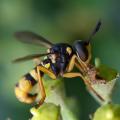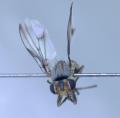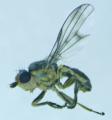Diptera.info :: Identification queries :: Other insects, spiders, etc.
Who is here? 1 guest(s)
|
Cantharis quadripunctata, northern Norway
|
|
| Geir79 |
Posted on 03-06-2013 13:12
|
|
Member Location: Norway Posts: 689 Joined: 09.03.11 |
I think these beetles are a dark form of Cantharis quadripunctata, is that correct? I've checked with several keys, and also there aren't many possible species in this genus this far north... I've not checked the genitalia of the beetles, hope it's possible to identify these without doing that (not collected any). Length of all the photographed individuals are 9-10 mm. Found close to the beach between 29. and 31.05.2013, in Bodø, northern Norway. Geir79 attached the following image: 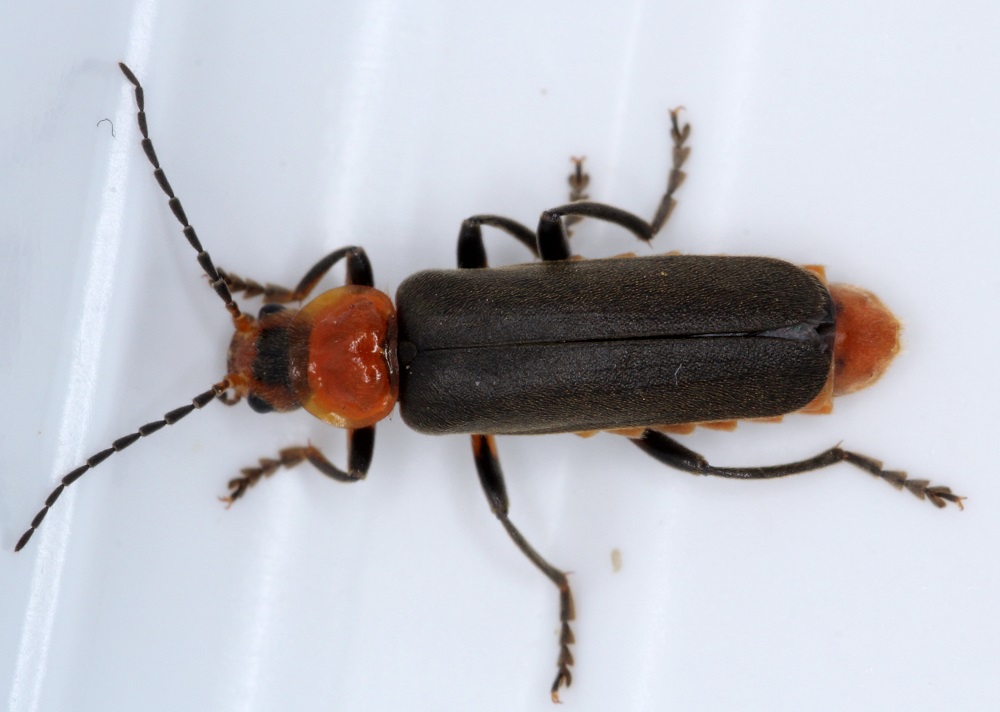 [124.69Kb] Edited by Geir79 on 04-05-2016 13:12 |
|
|
|
| Geir79 |
Posted on 03-06-2013 13:13
|
|
Member Location: Norway Posts: 689 Joined: 09.03.11 |
Second photo:
Geir79 attached the following image: 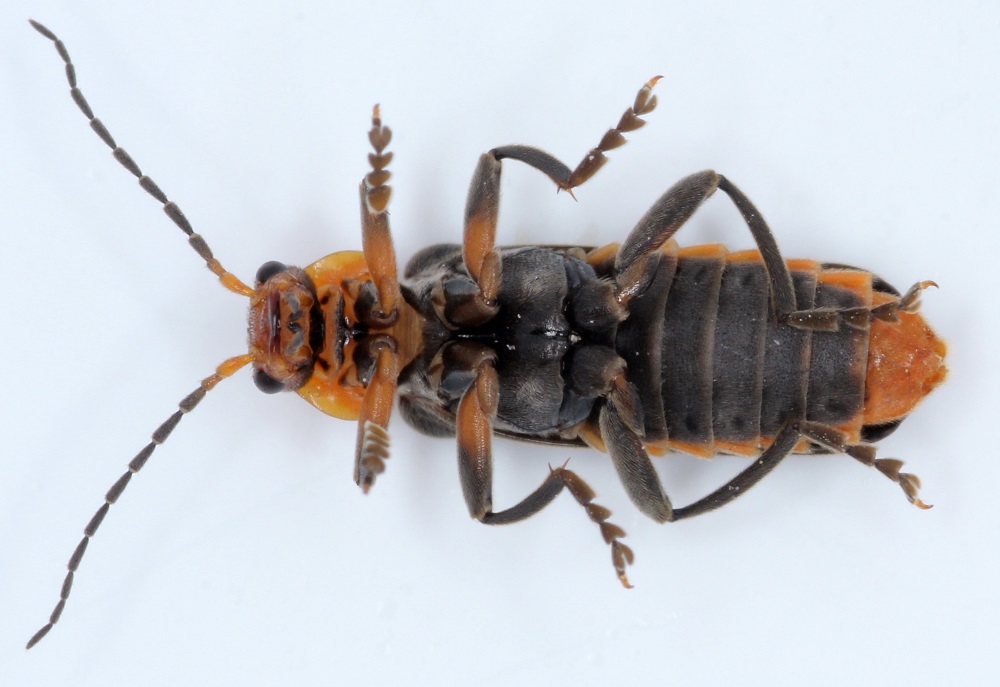 [130.29Kb] |
|
|
|
| Geir79 |
Posted on 03-06-2013 13:15
|
|
Member Location: Norway Posts: 689 Joined: 09.03.11 |
Another indiviual found at the same place (this one also have dark sternites as the previous), looks like C. fusca, but it's to small (not more than 10 mm) and C. fusca have never been found this far north in Norway.
Geir79 attached the following image: 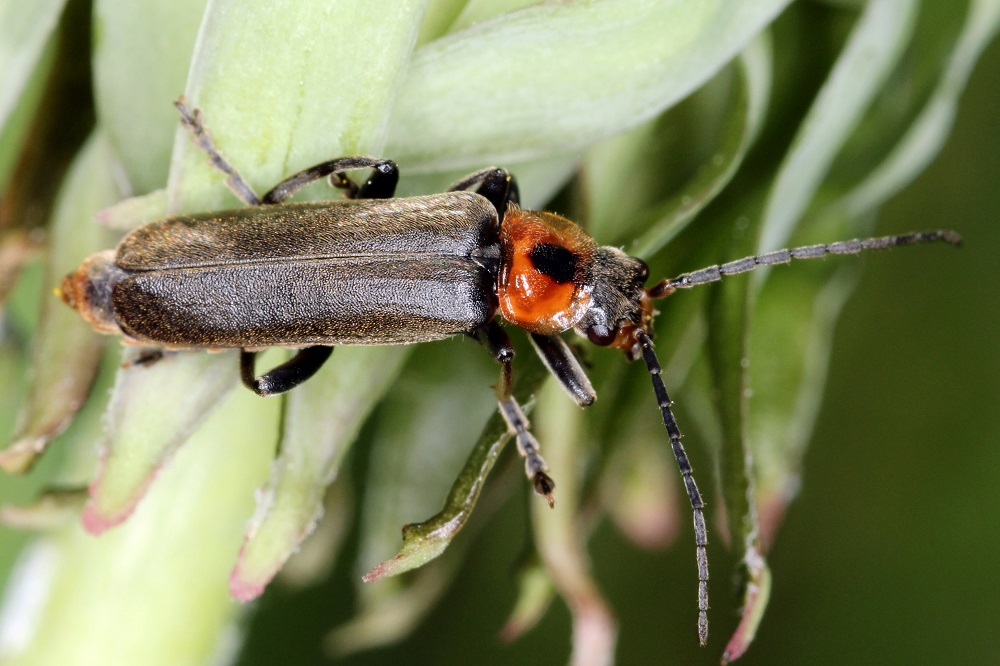 [181.34Kb] Edited by Geir79 on 03-06-2013 13:31 |
|
|
|
| libor |
Posted on 03-06-2013 16:46
|
|
Member Location: western Bohemia Posts: 1274 Joined: 30.05.09 |
The first one is probably female Ancistronycha abdominalis, the second one looks really weird :-( Maybe C. quadripunctata, a very rare form called "ab. sumavica Roubal", which is known from several specimens from Germany and SW Czech Republic. If you wish to have exact ID of some "strange" Cantharidae, you need to kill and sent me them... Libor |
|
|
|
| Geir79 |
Posted on 03-06-2013 19:05
|
|
Member Location: Norway Posts: 689 Joined: 09.03.11 |
Thanks! I think both of these are Cantharis quadripunctata ab. sumavica then (Ancistronycha abdominalis is not known from Scandinavia, and the abdominal sternites doesn't match the drawings I have in a key for british Cantharidae, it's no problem checking this detail from my photo when zoomed in). But if it needs to be checked with specimen to confirm C. quadripunctata ab. sumavica I could send a few to you or another specialist on Cantharidae... It's very abundant at the location, so I hope it's no problem collecting a few. |
|
|
|
| libor |
Posted on 03-06-2013 19:37
|
|
Member Location: western Bohemia Posts: 1274 Joined: 30.05.09 |
OK, try to catch more specimens of both variant and then we could know more. I do not know Cantharis quadripunctata with uniformly red pronotum and only apical spot on head. Maybe it should be extremely dark variant of Ancistronycha cyanipennis (= violacea). I am almost sure you have two species on your pictures. You could send them to the local specialist, but, believe me, please, I have big experiances in Cantharidae. Libor |
|
|
|
| Geir79 |
Posted on 03-06-2013 21:07
|
|
Member Location: Norway Posts: 689 Joined: 09.03.11 |
Thank you, I'll probably send these specimens to you, I don't know of any local (Norwegian) specialist on Cantharidae... There are forms like the first one in the same location with light brown elytra, maybe I could add another photo.
Geir79 attached the following image: 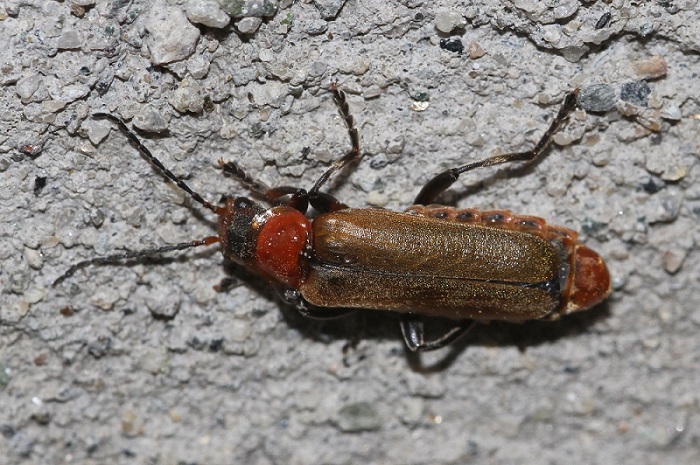 [167.28Kb] Edited by Geir79 on 03-06-2013 21:08 |
|
|
|
| Geir79 |
Posted on 03-06-2013 21:10
|
|
Member Location: Norway Posts: 689 Joined: 09.03.11 |
Second photo:
Geir79 attached the following image: 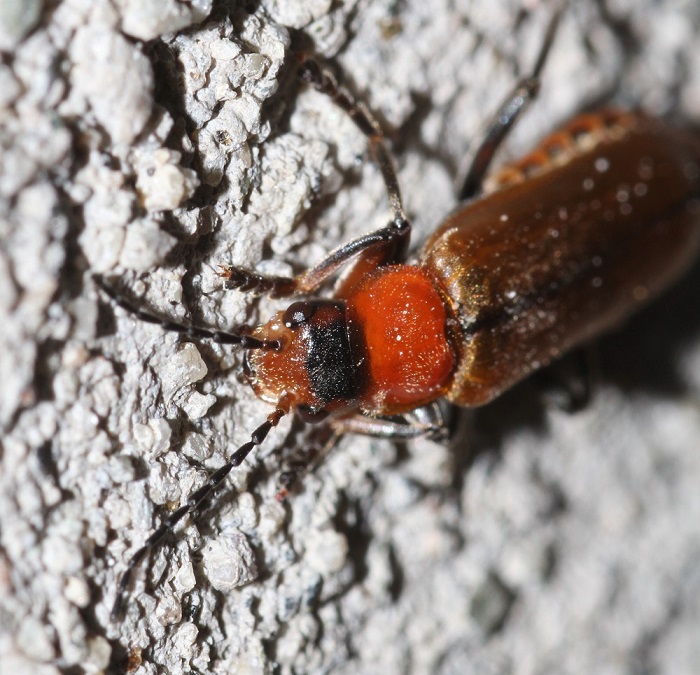 [170.23Kb] |
|
|
|
| libor |
Posted on 03-06-2013 21:34
|
|
Member Location: western Bohemia Posts: 1274 Joined: 30.05.09 |
This looks like Cantharis kervillei (formerly muelleri). In these cases, examination of genitalia seem to solve all your problems :-) Libor |
|
|
|
| Geir79 |
Posted on 03-06-2013 21:49
|
|
Member Location: Norway Posts: 689 Joined: 09.03.11 |
Ok, maybe I'll try a examination of the specimens instead! I've done that previously, but not many times (I've never attempted to extract the genitalia of the males, is this simple?). Could this key be used: http://www.coleo-net.de/coleo/texte/cantharis.htm ? I've not found any other keys that included species like C. kervillei (muelleri), quadripunctata etc. |
|
|
|
| libor |
Posted on 04-06-2013 06:58
|
|
Member Location: western Bohemia Posts: 1274 Joined: 30.05.09 |
This key is modified from Die Käffer Mitteleuropas, very good for the beginner. But start here http://www.coleo-net.de/coleo/texte/cantharidae.htm to try to separate Cantharis and Ancistronycha. Remember, please, that Cantharidae, although called "soldier beetles" due to their !niformity", are in fact highly variable in color! Best wishes Libor |
|
|
|
| Geir79 |
Posted on 04-06-2013 16:55
|
|
Member Location: Norway Posts: 689 Joined: 09.03.11 |
I've photographed a copula, is it certain that these two belong to the same species or could they still be two different ones, even if they're copulating??? The male looks identical to the black male in this thread, the female looks identical to the female with light brown elytra in the last photos...(I'm not able to upload more photos in this thread it seems). The first one in this thread must be a Cantharis sp., I've checked the tarsal claws on one specimen I've found today. It keys to Cantharis livida, maybe it could be Cantharis livida var. rufipes, but I'm very uncertain about that.... I'm not able to identify these females anyways  Normally I think Cantharis is easy to identify (they match the descriptions given in the keys), but I've had problems with these local variants (first noticed them in 2010, always at the same location close to the shore). Edited by Geir79 on 04-06-2013 16:59 |
|
|
|
| libor |
Posted on 04-06-2013 19:19
|
|
Member Location: western Bohemia Posts: 1274 Joined: 30.05.09 |
Cantharis livida has almost all parts of legs reddish... Without pictures of genitalia or without studying the specimens, I cannot tell more... Libor |
|
|
|
| Geir79 |
Posted on 04-05-2016 13:04
|
|
Member Location: Norway Posts: 689 Joined: 09.03.11 |
I've collected several specimens similar to the ones on the photographs (in 2013 and 2014). Sent these specimens to a Norwegian specialist, all have been identified as Cantharis quadripunctata, based on examination of genitalia (both males and females).
Edited by Geir79 on 04-05-2016 13:04 |
|
|
|
| Jump to Forum: |



